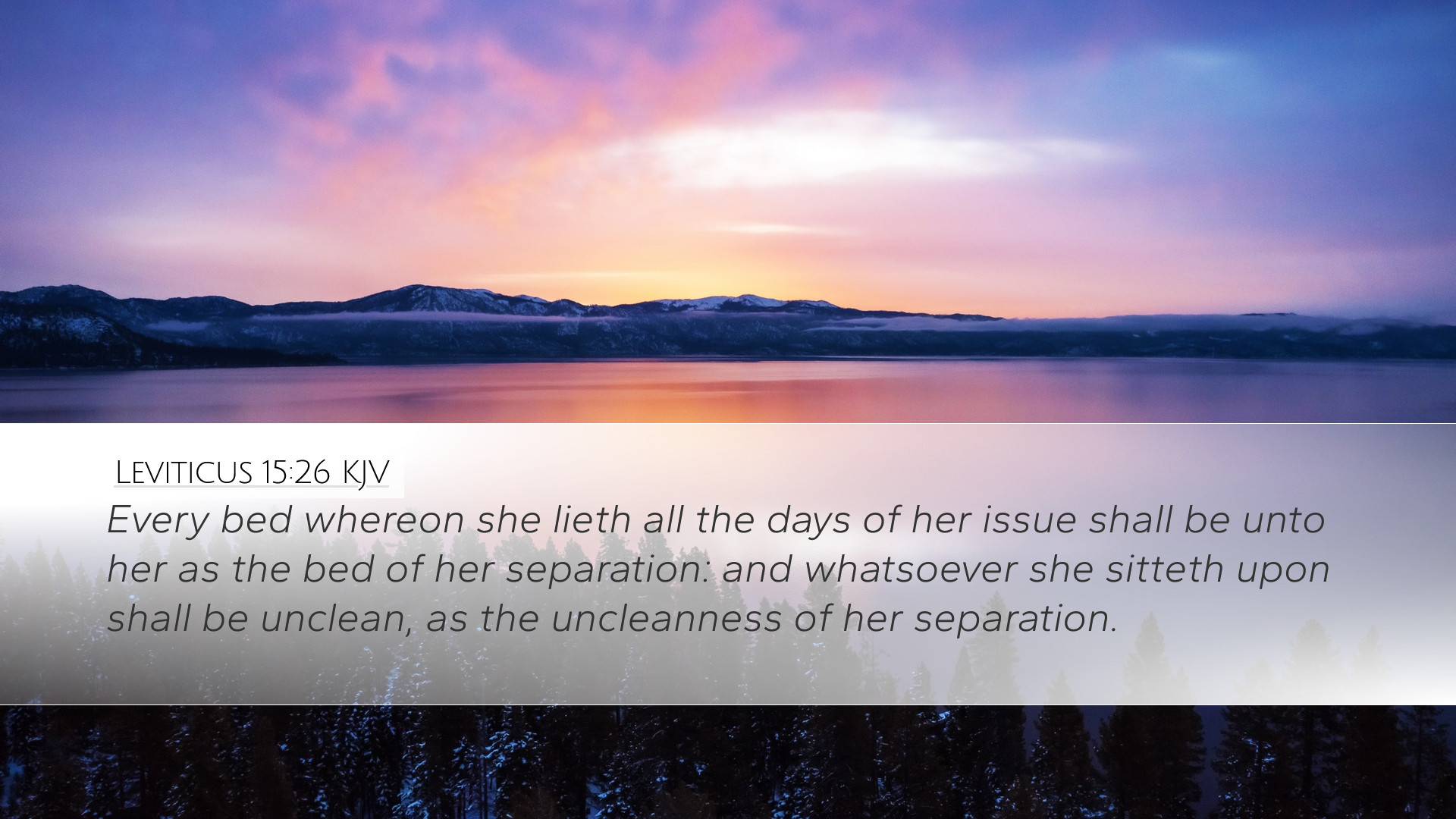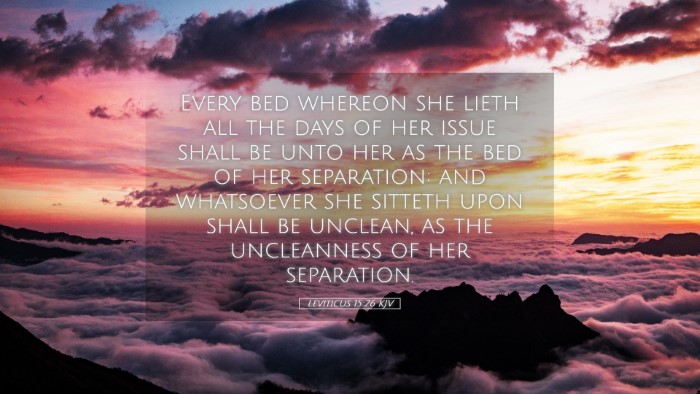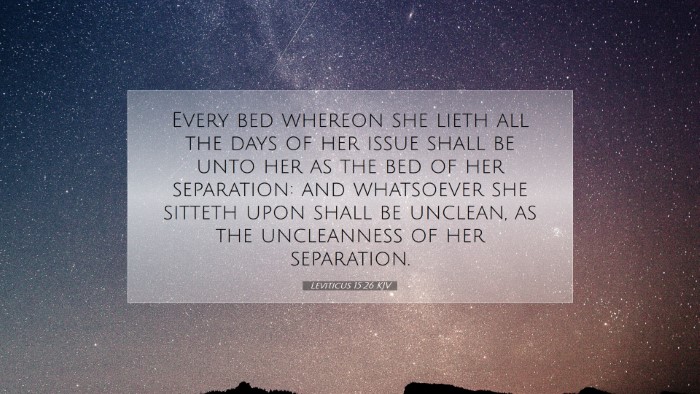Commentary on Leviticus 15:26
Verse: "And every bed, whereon she lieth, shall be unclean: and every thing that she sitteth upon shall be unclean." (Leviticus 15:26)
Introduction
This verse from Leviticus addresses the ceremonial laws regarding purity and uncleanliness, specifically pertaining to women and their monthly cycle. The implications of this command are deeply rooted in the theological and cultural contexts of ancient Israel, emphasizing both physical and spiritual purity.
Meaning and Context
The preceding chapters of Leviticus detail various laws concerning bodily discharges, which are meant to teach the nation of Israel about holiness and the distinction between clean and unclean. To grasp the essence of Leviticus 15:26, it is crucial to explore its surrounding context.
- Ceremonial Law: The laws regarding cleanliness were part of the ceremonial system, which was designed to set Israel apart as a holy nation. Such distinctions were significant in maintaining the covenantal relationship with God.
- Representation of Sin: The state of uncleanliness due to bodily emissions served as a physical reminder of the need for purification and the seriousness of sin. In the ancient Israelite mindset, bodily discharges symbolized deeper spiritual implications.
Commentary Insights
Matthew Henry's Commentary
Henry emphasizes that the ceremonial laws signify greater moral truths. He interprets the uncleanness as a reflection of the need for separation from common and holy. In this verse, the emphasis on a woman’s bed and the objects she touches underscores the communal aspect of purity, reminding Israel that personal conduct affects communal holiness.
Albert Barnes' Notes on the Bible
Barnes elaborates on the technical aspects of the laws in ancient Israel. He highlights that the effects of ceremonial uncleanness mandated physical separation from the temple and communal worship during the time of impurity. This illustrates God's desire for holiness and how that holiness affects community dynamics. The broader application focuses on the need for believers to approach God with personal purity, reflecting on how unclean states are more than mere physical conditions.
Adam Clarke's Commentary
Clarke's insights delve into the implications of cleanliness laws. He notes that in the context of Leviticus, purity laws serve to instruct the people in habits that promote a holy lifestyle. He points out the practical concerns surrounding cleanliness, particularly in communal settings, and how adherence to such laws cultivates a culture of respect towards the divine and each other.
Theological Implications
In understanding Leviticus 15:26, there are several theological implications for contemporary readers:
- Holiness and Community: The insistence on purity in a shared community context suggests that one's individual actions have communal ramifications. In the body of Christ, believers are called to encourage each other in holiness.
- Moral Purity: The symbolic connection between physical uncleanness and spiritual uncleanliness serves as a reminder that the interior life of a believer must reflect outwardly in their interactions and lifestyle.
- Christ's Fulfillment of the Law: The ceremonial laws point toward Christ, who fulfills the ultimate need for purification. In Him, believers find the perfect mediator who cleanses all impurities, thus making the old covenant’s requirements unnecessary for salvation.
Application for Believers
This verse and its surrounding laws challenge modern believers to reflect on their personal and communal lives:
- Personal Examination: Believers should consistently evaluate their lives for areas that require spiritual cleansing, understanding that imperfections can influence community life.
- Encouraging Holiness: In churches, there should be an emphasis on maintaining holiness, not by exclusion but through mutual accountability, recognizing the strength provided through the community of believers.
- Understanding Grace: While the laws of purification appear stringent, they remind Christians of the grace found in Christ, who provides total purification and sets believers free from the law’s curse.
Conclusion
Leviticus 15:26 is a profound reminder for today's church about the importance of holiness, both personally and collectively. This verse serves as an important touchstone for understanding the serious nature of sin as well as the incredible grace that God provides through Christ. By reflecting on this scripture, pastors, students, theologians, and Bible scholars can gain deeper insights into the character of God, the necessity of purity, and the implications for community life.


